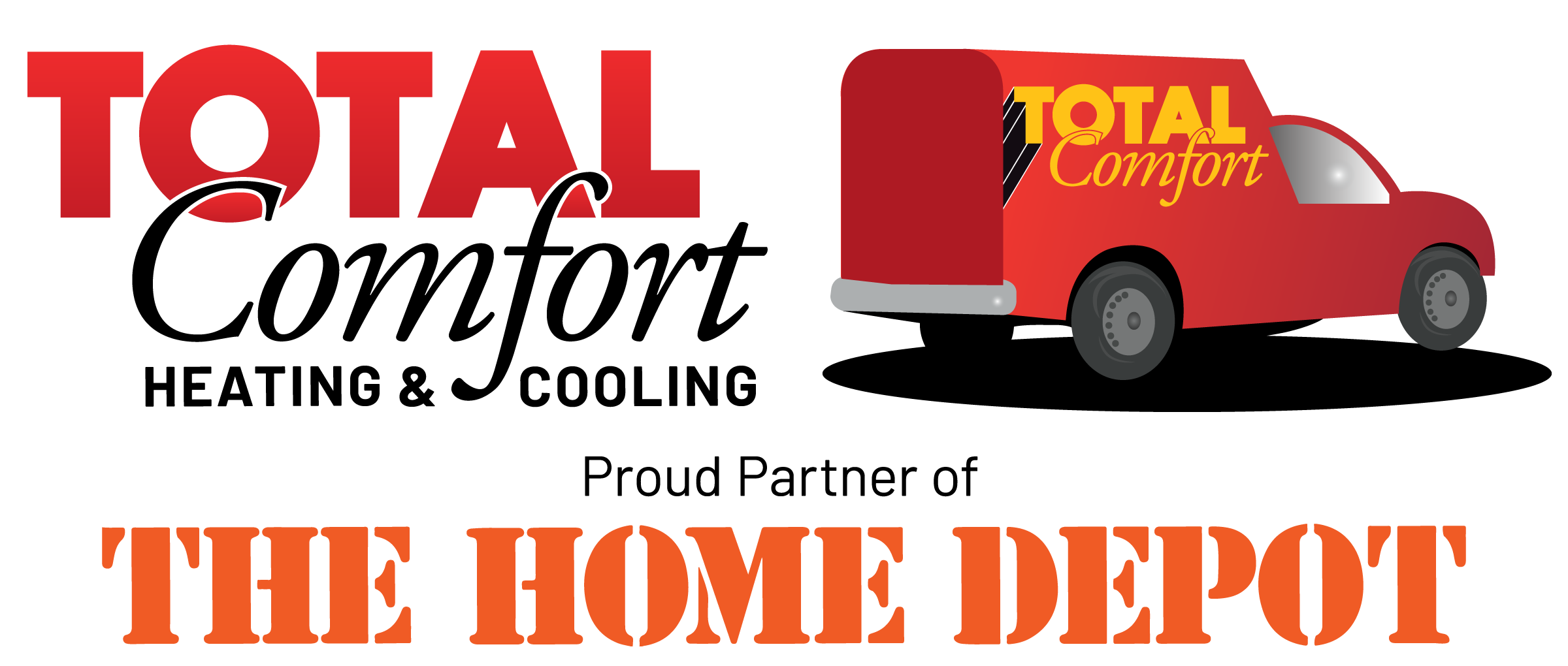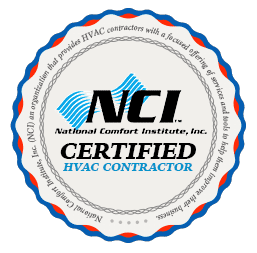Why Your AC Unit Is Freezing up & What to Do
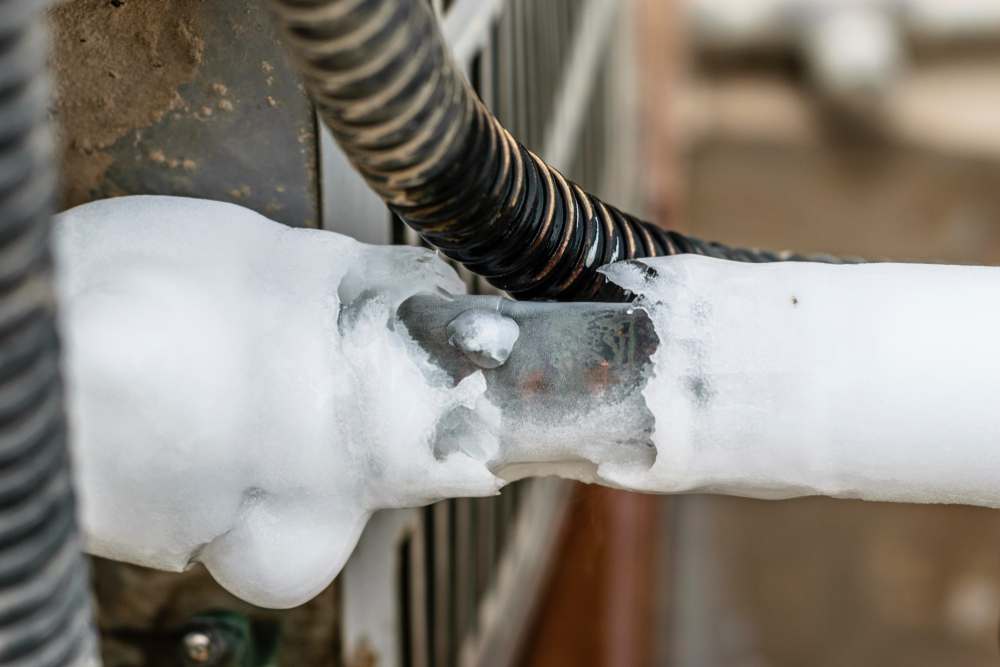
Air conditioners are not meant to freeze, which can cause the cooling system to malfunction and fail to properly chill the house. This page discusses the most likely causes of freezing, what to do if an air conditioner freezes, and simple preventative techniques. Residents in the St. Paul and Minneapolis, Minnesota areas in need of air conditioning repairs or an AC tune-up should contact the experts at Total Comfort.
How to Tell if Your AC Is Freezing Up
Check the supply registers for warm temperatures, which might indicate frozen evaporator coils. Open the panel and look for ice. A lack of ice does not always imply freezing, but seeing ice is a strong sign that your air conditioning unit is frozen.
4 Common Causes Behind AC Freezes
Blocked Airflow
Clogged air filters can cause a drop in air flow, causing the evaporator coil temperature to drop and freezing. Blocked registers and vents can also cause freezing. Objects near these passageways can also impact airflow. Adjustments should be made as needed. If freezing persists, contacting HVAC specialists may be necessary due to installation or design concerns.
Low Refrigerant
Frozen air conditioners may indicate a low refrigerant level, which could be the result of a leak. You may hear a hissing sound or feel a rush of hot air coming from the AC. Refrigerant leaks must be sealed quickly to avoid additional losses. After this, technicians must inject more refrigerant to restore normal levels. This is not something you should try to do on your own because refrigerant is hazardous. Experts have the necessary tools and are trained to safely handle the situation.
Dirty Evaporator Coils
Frozen air conditioners are often caused by malfunctioning evaporator coils. It is easy to overlook the accumulation of dirt and debris over time. This debris acts as a barrier between the coils and the air, reducing heat transfer and making the coils colder. Additionally, dirt can clog condensate pipes, making the system work harder and consume more energy.
Malfunctioning Blower Fan
A blower fan running at a lower speed than it should might put too much pressure on your air conditioning unit. This will make it difficult for the system to maintain the desired temperature in your house. If the fan completely stops moving, it will cause a drop in the overall system pressure. This can cause the refrigerant to expand too much and become too cold.
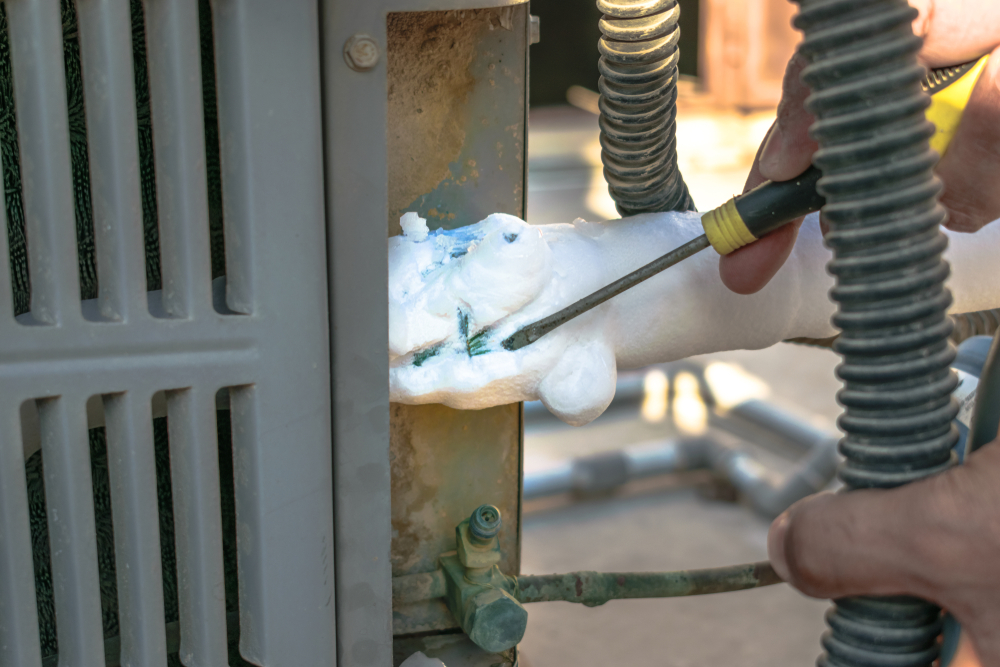
What to Do When Your AC Unit Freezes Up
An air conditioning unit is a self-contained system made up of several related and complementary parts. A malfunction in any of these components might cause major problems, including what happens with frozen air conditioning coils.
Step 1: Shut Off Your AC and Thaw
To fix an AC issue, turn off the AC and let the ice melt. Do not use the system again until it defrosts and dries completely. Avoid using the compressor when it’s frozen, as excessive strain could damage it. Do not break up the ice to thaw faster, as this could damage multiple parts. Be patient, and give the AC system time to thaw and dry. In some cases, letting the system thaw and dry is enough to restore normal operation. Restore power and turn on the blower.
Step 2: Dry
Thawing the ice is the first step towards getting the system back to normal, but dealing with dampness on the air conditioner is crucial. Before turning on the air conditioner, ensure everything is dry and speed up the drying process with an external fan or blower. Allow the air conditioner to dry for an hour or more before returning for an examination.
Step 3: Find the Cause and Fix
Air conditioner freezing can be caused by several factors, including checking air filters, changing thermostat and fan settings, running air conditioning on cold nights, and a worn-out compressor.
- Low thermostat and fan settings can strain the unit, making it difficult to maintain the set temperature. To maintain airflow, increase fan speed on hot days.
- Air filters ensure clean air circulation and should be cleaned or replaced periodically.
- Running AC on cold nights can freeze the refrigerant, freezing any moisture in the air before it can circulate properly. A worn-out compressor cannot effectively compress the refrigerant, leading to frozen AC coils.
- Some air conditioning problems can be easily fixed by cleaning them, but more complicated issues require an inspection from a qualified HVAC professional. Contacting your HVAC provider for emergency support is essential for resolving these issues.
Tips to Prevent Future Air Conditioner Freezes
• Regular filter replacement improves indoor air quality and minimizes dirt buildup. Standard inspections are recommended.
• Removal of airflow obstructions. HVAC technicians identify and address obstructions through thorough inspections. Solutions range from simple fixes to complex ductwork modifications.
• Cleaning of air conditioner evaporator coils to remove dirt, dust, and debris. Check for clogs along the condensate line.
• Regular checks of the air conditioner refrigerant level to maintain the system performance and efficiency, fixes leaks, and recharges the system if unusual levels are detected.
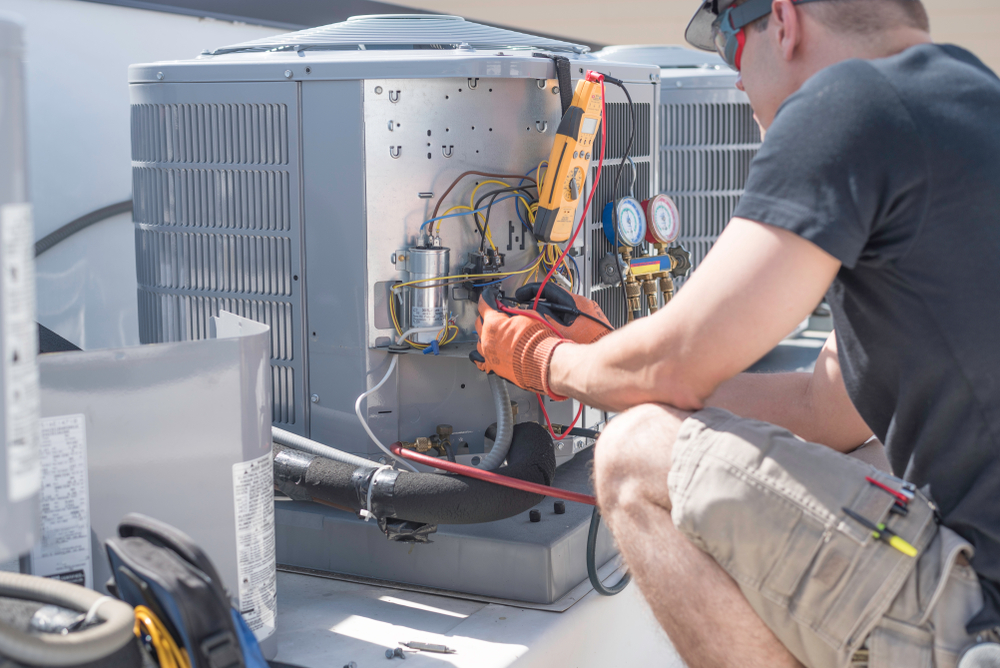
Frequently Asked Questions
Should I turn off my AC if it’s Frozen?
If your AC is frozen, turn off the AC unit and let the ice melt. Do not use the system again until it completely defrosts and dries. Avoid breaking up the ice in hopes of speeding up the thawing process as this could damage multiple parts.
How long do I leave my AC off to defrost?
It might take up to 24 hours for your unit to thaw out, possibly less if the weather is hot. Your air conditioner may also leak somewhat when the ice melts, so throw some towels below if you see any pooling water. If your air conditioner does not thaw out after 24 hours, contact a professional to diagnose the problem.
Can I turn my AC back on after it thaws?
Once your air conditioner is free of ice and completely dry, restart it and set the fan to auto, which may take an hour or more to accomplish.
Can an overworked air conditioner freeze?
Overworking an air conditioner can lower the pressure in the cooling system, causing it to freeze up. To avoid this, do not place unreasonable demands on your air conditioner.
Contact the Certified Experts at Total Comfort For AC Repairs
Locals in the St. Paul and Minneapolis, Minnesota, regions in need of HVAC maintenance or repairs, should get in touch with the professionals at Total Comfort.


